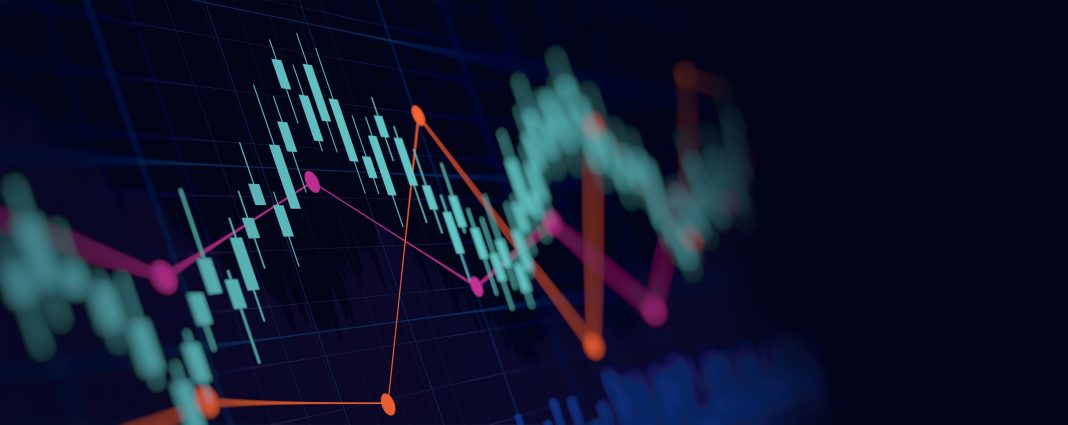Marc Brightman and James Christopher Mizes, from the University of Bologna, explore the importance of responsible finance in a world of rising risks
For over a decade, experts have been sounding the alarm about the new risks that crises like climate change, political unrest, and pandemics pose for global financial stability. Financial investors worldwide have joined a chorus of economists, analysts, and central bankers focused on harnessing financial markets’ power to prevent the worst effects of today’s planetary “polycrisis”. (1)
And yet, these professionals have long run up against an enormous obstacle: how can the future effects of these crises be anticipated? And who exactly is responsible for preventing them? At the University of Bologna, our team of anthropologists at the Hau of Finance research project is pursuing answers to these pressing political questions by observing what we call “the moral turn” in global finance.
More than ever before, financial professionals are concerned with the moral consequences of their work. (2) They want to know and reduce their role in creating global crises, and they want to minimise society’s – as well as their own – exposure to their risks.
Our research team has analysed how these financial solutions to global crises are taking shape on the ground and what consequences they have for the world’s most vulnerable populations. At stake in our research is determining who is financially responsible for addressing a global array of exponentially rising risks.
What kind of problem is risk today?
At first glance, knowing the risks of something like climate change may seem simple. There is no shortage of catastrophic and climate-related weather events that make clear the deep vulnerability of people in coastal cities to flooding or, in more arid regions, to drought.
Financial analysts, actuaries, and economists have long taken pride in the statistical power of forecasting. They draw on historical data to estimate the probabilities of future events. And for decades, many have applied these methods to a host of social and environmental issues.
But climate catastrophes, political unrest, and global pandemics pose a big problem for this way of anticipating the future. Unlike other kinds of risks, they are largely unpredictable.
Measurement may be a solution, but who measures and how?
A staggering array of new methods have emerged to measure and incorporate these risks into financial decision-making – from environmental catastrophe modeling and systemic risk to introducing artificial intelligence into credit scoring and political risk analysis.
But these risks require far more than just measurement. They need complex negotiations over who should be responsible for their measurement, how they should be measured and, most importantly, who will be responsible for reducing them.
Consider, for example, recent experiments with pandemic bonds. Governments sell these bonds to investors, and investors are repaid if there is no pandemic. If there is a pandemic, however, investors lose money, and governments have cash on hand to fund their emergency response. In short, pandemic bonds serve as insurance against a kind of catastrophic risk.
Yet our research at the Hau of Finance has revealed some surprising disagreements over these bonds.
Among financial experts, the issue is how to measure the risk of a future pandemic. The methods they developed drew on the existing approaches to anticipating catastrophic weather events. However, critics pointed out that these models had very low predictive power because of human error in collecting public health data. This meant that, compared to weather models, they were less accurate. (3)
Citizens were also sceptical. In West Africa, Senegal’s pandemic bond was criticised as another instance of elite corruption and neo-colonialism. The bonds were widely denounced as part of “le mille milliards” (the thousand billions) of public funds that citizens accused government officials of embezzling. And the fact that it was a World Bank-sponsored programme modelled after France’s own pandemic bond only furthered popular disapproval. (4)
At issue in these cases was a debate over how these risks should be measured and who should be responsible for protecting against them: Citizens criticised the bonds as part of an immoral economy of neocolonial corruption, and financial professionals criticised the accuracy of their data.
Further, massive inequality is embedded in these kinds of financial instruments: poor countries are expected to take responsibility for reducing global risks created mainly by the world’s most wealthy. (5)
Responsible finance: Who is responsible for reducing risk?
These experiments with pandemic bonds offer a good lesson for how other kinds of risks will be known and negotiated in the future: similar debates have emerged around the responsibility for reducing the risks of impact investing.
In the past decade, social impact bonds have gained popularity as a new way to finance programmes meant to improve the lives of marginalised people – reducing homelessness, increasing food security, supporting women entrepreneurs, employing the unemployed, and building social housing.
For social impact bonds, measurement is key. Investors pay careful attention to whether programmes meet their stated social objectives. Because if they aren’t satisfied, investors lose money. And if they are, investors receive a financial return. Measuring and managing these social objectives is, therefore, central to reducing social impact bonds’ main risk: default.
Our research at the Hau of Finance has observed one of the more pernicious effects of such measurement: poor and marginalised people are often responsible for reducing risk.
One social impact bond in Colombia pushed unemployed people into low-wage precarious employment. And the bond’s programme staff urged workers to keep these jobs, despite their abysmal working conditions. This is because public service providers wanted to meet their social impact objectives, reduce the bond’s risk of default and ensure access to future bond funding. (6)
In Ghana, something similar happened. A social enterprise aimed to lift smallholder farmers from poverty by promoting sustainable agriculture. To do so, it mobilised impact financing from international investors. However, farmers were left financially responsible for increasing their own yields. They borrowed materials from the programme to meet its impact objectives. But they remained on the hook to pay for these materials even when the programme failed to increase their yields. (7)
Democratising measurement, socialising risk
Policymakers worldwide remain optimistic about the potential for finance to innovate new solutions to these global problems. But, in the end, who pays for it?
As our research clearly shows, the responsibility – and often the costs – of reducing the risks of impact investing often falls on the shoulders of the vulnerable people these programmes were meant to benefit.
To reduce the inequalities of this risk reduction, governments should support more democratic and more socialised forms of risk management. They should ensure that those most affected by today’s polycrisis have a more significant role in measuring them. (8) But less of a role in paying for them.
References
- Tooze, A. (2022). Welcome to the world of the polycrisis. Financial Times. https://www.ft.com/content/498398e7-11b1-494b-9cd3-6d669dc3de33
- Dal Maso, G., Tripathy, A., & Brightman, M. (2022). A moral turn in finance?: Labeling, purpose, and the morality of markets. Focaal, 2022(93), 1-17.
- Randolph, J. (2023) The financialization of pandemic risk: The World Bank pandemic bonds and COVID-19. Paper presented at The Annual Meeting of The American Anthropological Association/Canadian Anthropological Society. Toronto.
- Yount-André, C. (2023) Strategies of Scale in Crisis Bonds: Sustainable finance and families in Dakar, Senegal. Paper presented at the Annual Meeting of The American Anthropological Association/Canadian Anthropological Society. Toronto.
- Gabor, D. (2021). The Wall Street Consensus. Development and change, 52(3), 429-459.
- Gómez Muñoz, N. (2023) Lives and livelihoods Amidst Social Impact Bonds in Colombia. Paper presented at the Congress of the Association of Social Anthropologists of the United Kingdom.
- Campisano, C. (2023) Investing for Impact: An Exploration of Impact Investments in Rural Ghana. PhD thesis, University of Bologna
- Dal Maso, G. & Maresca, A. (2022). The capitalist market can’t solve the climate crisis – but green socialist planning can. Jacobin. https://jacobin.com/2022/10/capitalist-market-climate-crisis-green-socialist-planning-neoliberalism


This work is licensed under Creative Commons Attribution-NonCommercial-NoDerivatives 4.0 International.


